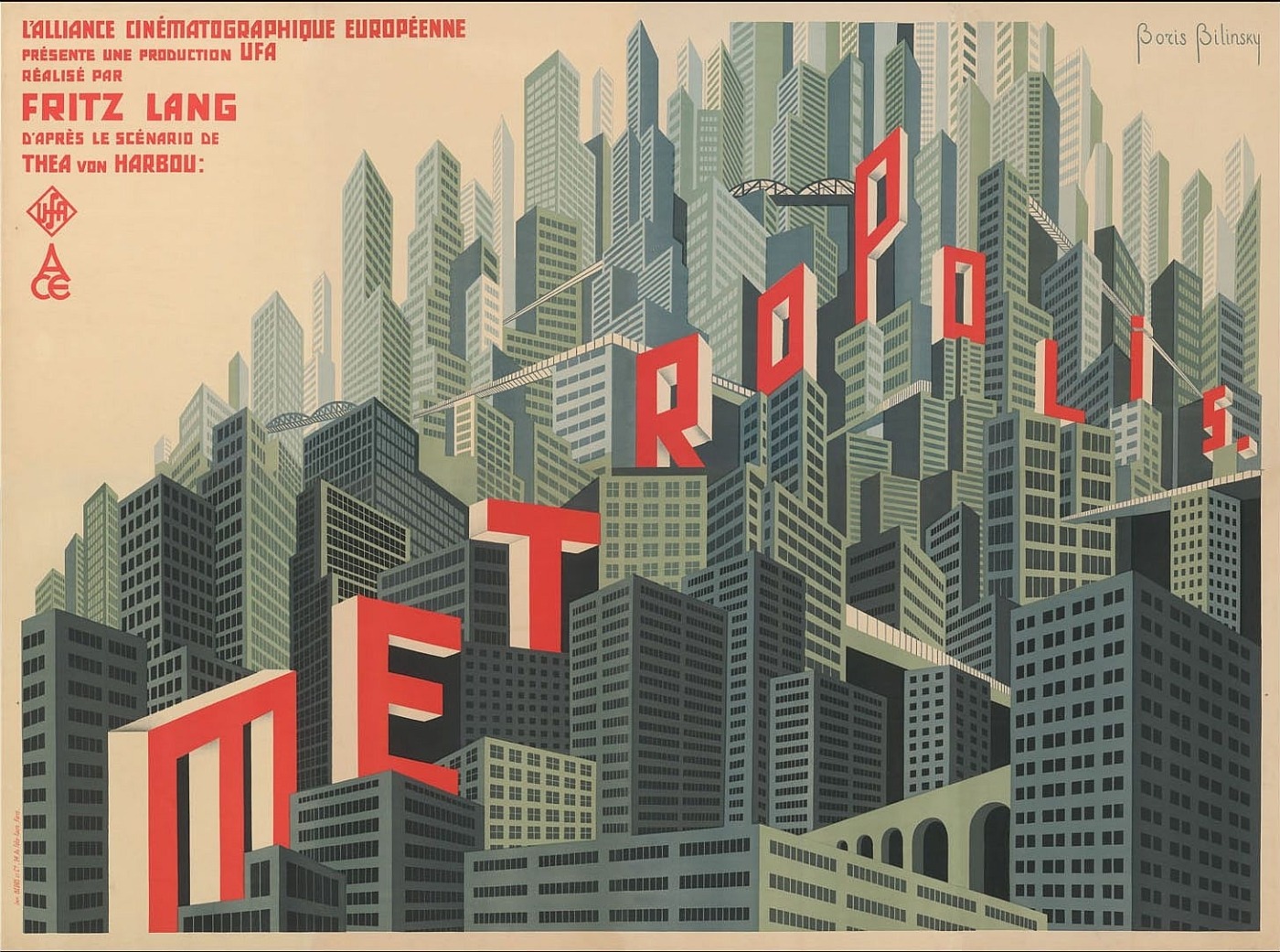Last Night I Watched: ‘Metropolis’
When I was about thirteen or so, I was given a tour of Television Centre in London. I bought some DVDs in the shop on the way out. On the tube train home, I was looking at them when a classmate exclaimed, with some disgust I might add, “black and white! Why would you watch something in black and white?”.
I’ve never really understood why some people aren’t willing to watch anything that isn’t in colour. To me, it’s rather like thinking all books without pictures are not worth reading. Just think about all the classics you would miss out on if that was your position.
I’ve never really understood why some people aren’t willing to watch anything that isn’t in colour. To me, it’s rather like thinking all books without pictures are not worth reading
That teenager would have hated Metropolis, because not only is it lacking colour, but sound too, bar the music. Fritz Lang’s silent 1927 German sci-fi drama is not a film that everyone is going to like. For some, the acting might seem so far over the top it’s practically reached cruising altitude, the plot and message so simplistic you could probably describe both in less time than it takes to eject the Blu-ray Disc, and the recent restored version of the film so long you’ll wonder if you’ve actually arrived in the far future by the time it’s all over.
But personally? I don’t really care about these things. Yes, I’ll admit that it’s very lengthy and its story isn’t the most complex ever recorded, but not every film has to be some action-packed thriller. I seriously doubt anyone has ever watched Yasujirō Ozu’s Tokyo Story and halfway through thought “it’s good, but this would really benefit from a Fast & Furious-style car chase and sudden murder mystery plot”.
The story, which sees the son of the master of Metropolis go beneath the futuristic city to discover that the workers who actually power it are being exploited and harmed, is basic but enjoyable enough. Simplistic isn’t always synonymous with boring. If nothing else, it’s got an evil shape-shifting robot, a fight on the top of a cathedral and scenes where our heroes must save children from a deadly flood. What more could you want? This is an epic tour of the future with plenty of unforgettable characters to boot.
This is an epic tour of the future with plenty of unforgettable characters to boot
What I adore most about this film is how it look – stunning doesn’t do it justice. It’s one of the few films I’ve watched and within the first few minutes announced how beautiful it is. There are several special effects and numerous sets which aren’t just impressive for the 1920s but still hold up in the 2020s.
By the time it was released it had become the most expensive movie ever made, and it certainly looks like it. If it isn’t the most gorgeous film to have come out of Weimar Germany, it must be extremely close. Some might prefer to watch a shortened version of the film, but when it looks this good, why would you want to?
Metropolis is one of the first feature-length science-fiction movies ever made and one of the most famous too. Pictures of the robot and the city have been used elsewhere hundreds of times. First-time viewers might be worried that the film cannot live up to its reputation, but they needn’t be. There are a couple of moments where it does start to show its age: the performances are unlike anything you’d find in a modern blockbuster, and it can feel like its message that “the mediator between head and hands must be the heart” is being yelled down your ears with a megaphone.
First-time viewers might be worried that the film cannot live up to its reputation, but they needn’t be
For a silent film it really wants to be heard. Despite these occasional distractions, modern-day viewers should still find it a joy to watch. When one great moment passes, another quickly comes along, whether it be a weird but wonderful shot of dozens of eyes or a vision of a machine turning into a god and swallowing workers up. The cinematography will leave you feeling something between awe and admiration, the story is simple but engaging, and the characters are for the most part memorable.
Metropolis is an absolute masterpiece by Lang. It is both a dazzling view of a potential future as well as a fascinating look back at cinema’s past; in this case, to an era that was to be unhappily ended by the rise of the Nazis. It is not a film that everyone will love as much as I. Some people might find that it drags somewhat, especially without any talking, and some might find it just a tad dull. I understand that position, even if I personally disagree.
It is both a dazzling view of a potential future as well as a fascinating look back at cinema’s past
Nonetheless, to anyone unsure about whether they’d like it or not, I would say it is worth taking the risk, especially if you like science-fiction. If you haven’t, I’d strongly recommend watching it, though maybe with some friends discussing it if you want to avoid sitting in awkward silence for over two hours. For a film that’s slowly approaching 100, it’s still absolutely magnificent, and continues to age like a fine wine. I hope to revisit Metropolis again soon.

Comments